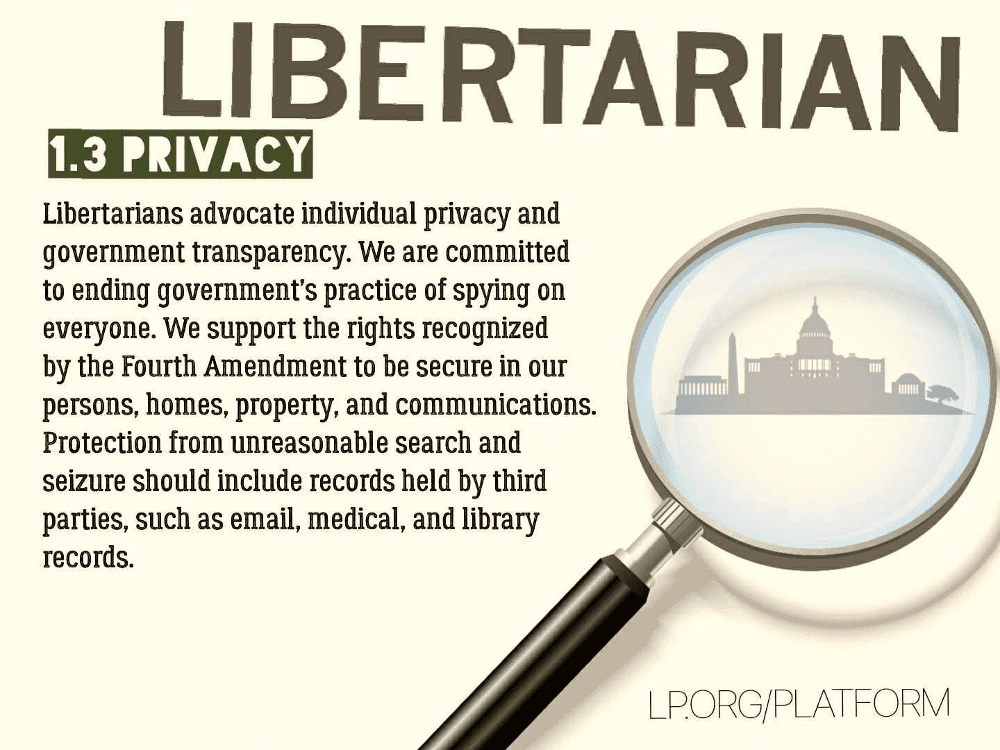Section 702 of the Foreign Intelligence Surveillance Act (FISA) enables the government to monitor the communications of foreigners, including “incidental” surveillance of any Americans communicating outside U.S. borders. In practice, Section 702 essentially allows for unlimited surveillance of Americans if the initial targets of that surveillance are foreigners. As a result, the NSA and FBI have used a surveillance program called PRISM to collect and store vast quantities of user information held by Facebook, Google, Apple and Microsoft. Section 702 of FISA was scheduled to expire on Dec. 31, but the House of Representatives voted 256-164 to extend it for another six years — a bipartisan approval of the unlimited surveillance state. The reauthorization bill now moves to the Senate, where it is expected to pass.
“This is an example of bipartisanship of the worst kind,” said Libertarian National Committee Executive Director Wes Benedict. “Republicans and Democrats have joined together to continue a law that allows the massive invasion of the privacy of all Americans. Democrats could have killed this bill in opposition to the Donald Trump administration, but they chose to continue enabling mass surveillance of their own constituents.”
Edward Snowden, the former National Security Agency (NSA) contractor and historic whistleblower, tweeted, “The vote to perform warrantless searches of Americans’ phone calls and emails failed, needing the support of 26 more. Dems could of swung it, but 55 of them voted with the Trump camp.”
In 2013, Snowden revealed to British newspaper The Guardian that the NSA was collecting and analyzing essentially all the email, Internet activity, text messages, and phone conversations of all Americans, without warrants, for the claimed goal of combating terrorism. In addition, the NSA uses a surveillance program known as “upstream” to monitor electronic traffic over nearly all communications that flow over the infrastructure of the internet. Warrantless searches are specifically prohibited by the Fourth Amendment to the U.S. Constitution. These warrantless searches have been given the veneer of constitutionality by Section 702 of FISA.
“Mr. President, this is not the way to go,” tweeted the libertarian Fox News legal analyst Judge Andrew Napolitano. “Spying is valid to find the foreign agents among us. But it’s got to be based on suspicion, and not an area code.”
Trump appeared at first to take Napolitano’s message to heart, responding on Twitter, “This is the act that may have been used, with the help of the discredited and phony Dossier, to so badly surveil and abuse the Trump Campaign by the previous administration and others?” Unfortunately, establishment Republicans yanked his leash and Trump later tweeted his support for surveillance, saying, “With that being said, I have personally directed the fix to the unmasking process since taking office and today’s vote is about foreign surveillance of foreign bad guys on foreign land. We need it! Get smart!”
Sen. Rand Paul has promised that he “will filibuster and do whatever” to stop reauthorization of Section 702 while it is being considered by the Senate.
“We can only hope that enough Freedom Caucus Republicans and civil liberties–supporting Democrats unite to allow the filibuster to work,” Benedict said. “We should encourage whatever libertarian tendencies they may have. That’s no substitute, though, for electing real Libertarians. The more actual Libertarian Party candidates who reach public office, the less politicians at all levels of government can get away with abusing their power.”
In 2018, the Libertarian Party plans to field more than 2,000 common-sense candidates at the local, state, and federal levels. All of them can be counted upon to oppose warrantless spying on Americans by the government.

